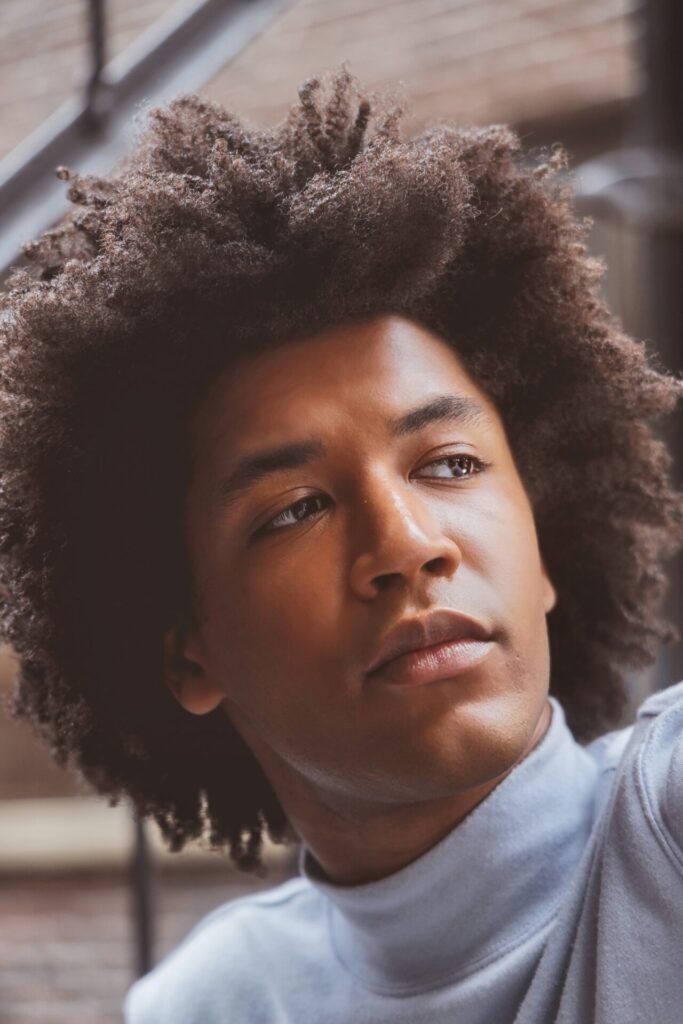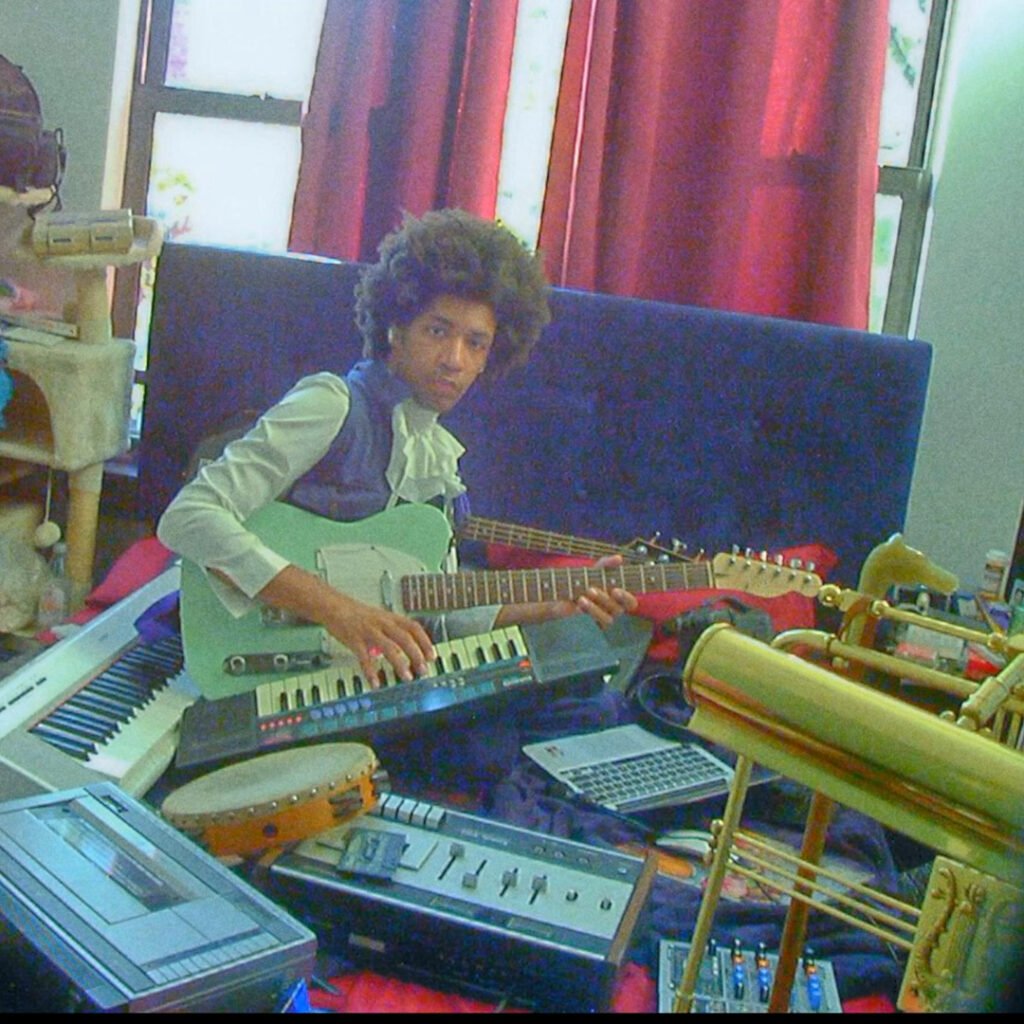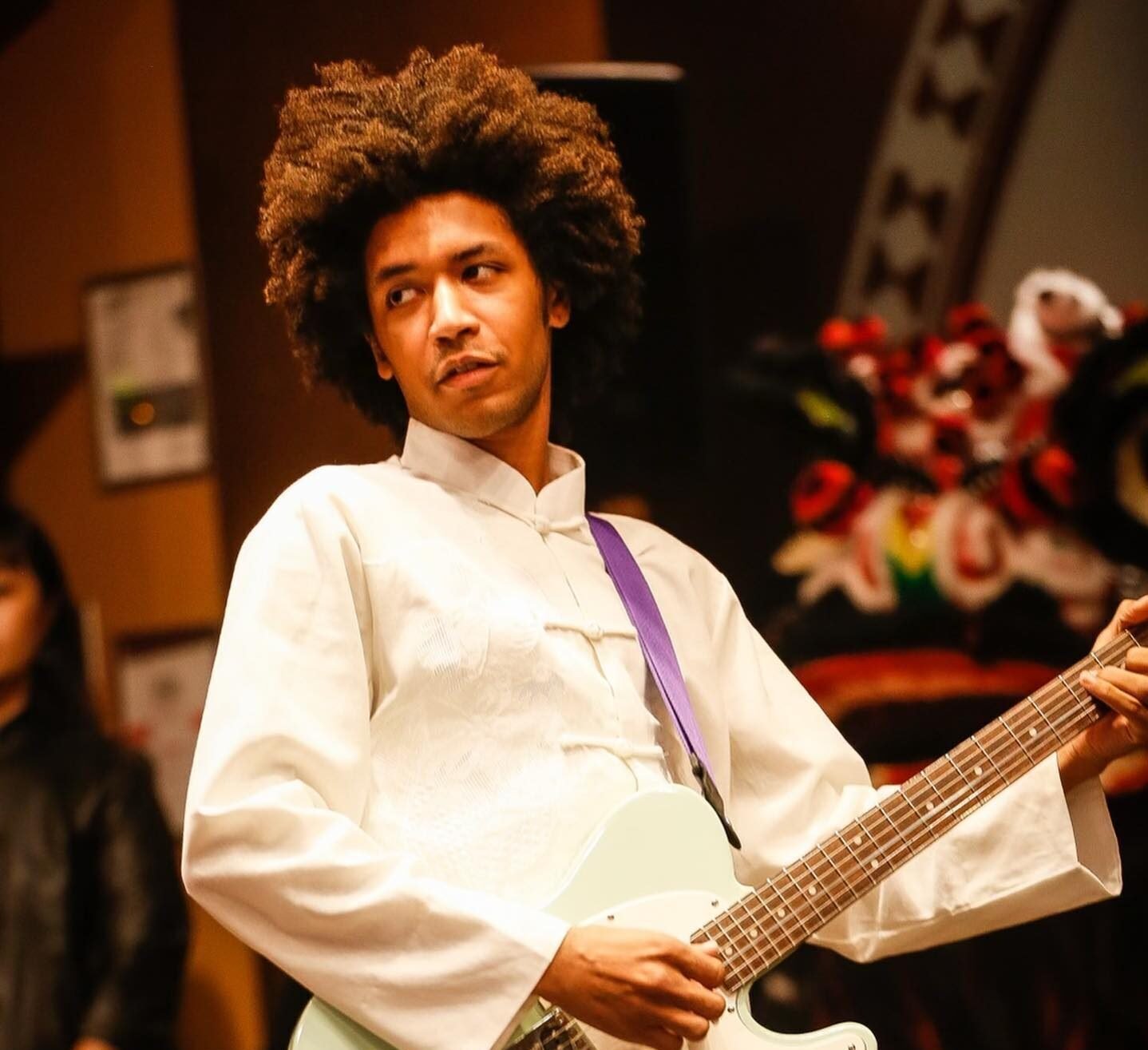Brooklyn, New York-based artist yrry’s first digital project was a multimedia endeavor. The project’s objective is to display a collection of unfiltered feelings and LoFi nostalgia as a commentary on how quickly social structures and daily life are changing. yrry paints a fine portrait of the human condition by drawing on a variety of sources, including childhood memories from the early 2000s and the contemporary post-pandemic queer culture in Brooklyn. Songs that push the limits of sophisticated pop composition contain all of this information and more.
Apply Online is the first single coming out ahead of his album Sath along with a cassette teaser released on Brooklyn cassette label Here Free Press. It’s based on his experience navigating our increasingly online-first world. He thinks it could be interesting to us if we align with music that is genuinely emotion-forward and features unique compositional experimentation. Check out the exclusive interview below:

1. Can you tell us a bit about where you come from and how it all got started? Y
YRRY: I’m from the middle of nowhere in Ohio, but I live in Brooklyn now. My parents are from overseas and we were kind of the odd ones out in white suburban America so I spent a lot of time at home on my computer growing up. Making music and whatever else on my computer was just one of those things I always did for fun.
2. Did you have any formal training or are you self-taught?
YRRY: I got into music first through the internet. I loved going on Newgrounds, vgmusic and a lot of other sites like that. My brother installed Mario Paint composer and Famitracker on our computer, and that’s where I began with composition. My brother would have story ideas and I would make music for them or music for little games I would program in Game Maker 7. I took lessons in violin, trumpet and double bass in school.
3. Who were your first and strongest musical influences and why the name ‘YRRY’?
YRRY: I only listened to video game music until I got into high school so that is definitely my biggest influence. I started to listen to The Doors, Yellow Magic Orchestra, and the Beach Boys in high school. Now my taste has become so varied, but I listen to either older stuff or music that’s just made by some random person online. I came up with yrry because I have a Russian name and when most people see me they think it’s strange because I don’t look Russian. My cat is named ooyoo. I like spelling things in a way that makes the letters look like that.
4. What do you feel are the key elements in your music that should resonate with listeners, and how would you personally describe your sound?
YRRY: My music is like that one episode of Spongebob with the Pretty Patties. A person can listen at first and a lot of it will probably sound ridiculous but hopefully there’s that one purple Pretty Patty that happens to be your favorite colour and it draws you in enough to give it a chance. I guess I would describe my recorded sound as “taped together”. I use mostly stuff from Goodwill to record. Stuff from that period of time where it was cool for something to say “digital” on the package. Good quality equipment from that time can still be found for cheap because it still hasn’t become “vintage” enough to be trendy, but I definitely have seen prices go up a lot on certain things since I first started recording.
5. For most artists, originality is first preceded by a phase of learning and, often, emulating others. What was this like for you? How would you describe your own development as an artist and music maker, and the transition towards your own style, which is known as POP?
YRRY: I got most of my early learning and inspiration from music I found on file sharing websites and early youtube. A fellow named Brad Smith released some classical music using Famitraker a long time ago and I think I learned a lot of my early music making from studying those tracks. I was inspired to earnestly release my music as it’s own thing when I came across the Monroeville Music Center’s music through the Free Music Archive. Other than that, we had lots of old video games we played endlessly and I absorbed all the music from those and experimented with it.
6. What’s your view on the role and function of music as political, cultural, spiritual, and/or social vehicles – and do you try and affront any of these themes in your work, or are you purely interested in music as an expression of technical artistry, personal narrative, and entertainment?
YRRY: I think that artists are compelled to include their views in their art. I mean, I make this music to express my thoughts and feelings, so my beliefs are necessarily the foundations of what I make. That being said I think that the inclusion of a lot of that stuff is proportional to the artist. I write a lot of songs about interpersonal stuff, emotions and sexuality because I’m just a person in my room thinking about stuff when I write songs, and I’m just putting them out to have them be out. I try to put a lot of meaning behind those thoughts, and that meaning extends into the subtext of the political system I live under and the complex cultural and social structures that have shaped me. Right now that’s as much of a statement as I need to make, but as I grow as an artist and as a person I’m sure I’ll want to include more of those views in my music.
7. Do you feel that your music is giving you back just as much fulfillment as the amount of work you are putting into it or are you expecting something more, or different in the future?
YRRY: I put every moment my life into my creativity, and I am thankful to have something to put all my life towards that I find truly fulfilling because that’s a rare thing these days. I’m not always recording a song, but I always have new music and ideas for sonic experiments appearing in my head. I work two jobs and I freelance, so I’m so lucky that I have this passion I can bring with me anywhere. I don’t need to set anything up or draw anything out, I can just keep the music going in my head while I work, and that gets me through each day. What more could I ask for?
8. Could you describe your creative processes? How do usually start, and go about shaping ideas into a completed song? Do you usually start with a tune, a beat, or a narrative in your head? And do you collaborate with others in this process?
YRRY: I usually just have melodies and lyrics going through my head so I always have something to record with on me. No matter where I am I just find a place to hum, whistle, beatbox, vocalise and dictate whatever I need to get the idea started. A lot of my ideas come about as a result of sexual experiences, not that that’s always the subject matter, but I get a lot of ideas that way for some reason. Sometimes, I sit down and record a whole song straight away, other times I work on one song day by day for months because I keep thinking of some new harmonic texture to sprinkle in or a way I want to manipulate the sound. Most of all my process is about trial and error, having something then starting over, trying the same song in a different genre, with different instruments. Making, destroying, building from the ashes.
9. Creative work in a studio or home environment, or interaction with a live audience? Which of these two options excites you most, and why?
YRRY: In an ideal world where I felt comfortable interacting with people, I could see live audience being an attractive option, but as things stand in this reality, home recording excites me most. For practical reasons, like I can’t sit on a stage all day experimenting with changing the sounds of an old Casio keyboard, but I can spend a month doing that at home. Plus orgasms are a part of my creative process and you can’t easily and comfortably have those in close enough proximity to a stage that it would work for me.
10. Do you think it is important for fans of your music to understand the real story and message driving each of your songs, or do you think everyone should be free to interpret your songs in their own personal way?
YRRY: I would say it both is and isn’t important. I think it’s important for me to put real meaning and how I really feel into my music and I would love people to hear my songs and connect with me in a real sense. But at the same time we live in 2023, attention spans aren’t what they used to be and it’s unhealthy for anyone to think people will know them through their music. It’s funny how back in the day people used to write a letter and send it to an artist and hope for a reply. Now everyone is kind of just a comment or a dm away but people don’t really want to be in touch with the artists they love that way. And that’s speaking from a place of an established artist, I’m just some rando putting music on the internet.
KEEP IN TOUCH:
INSTAGRAM | SPOTIFY | BANDCAMP | WEBSITE

Photo credits: @cheesedamnit for cover photo
